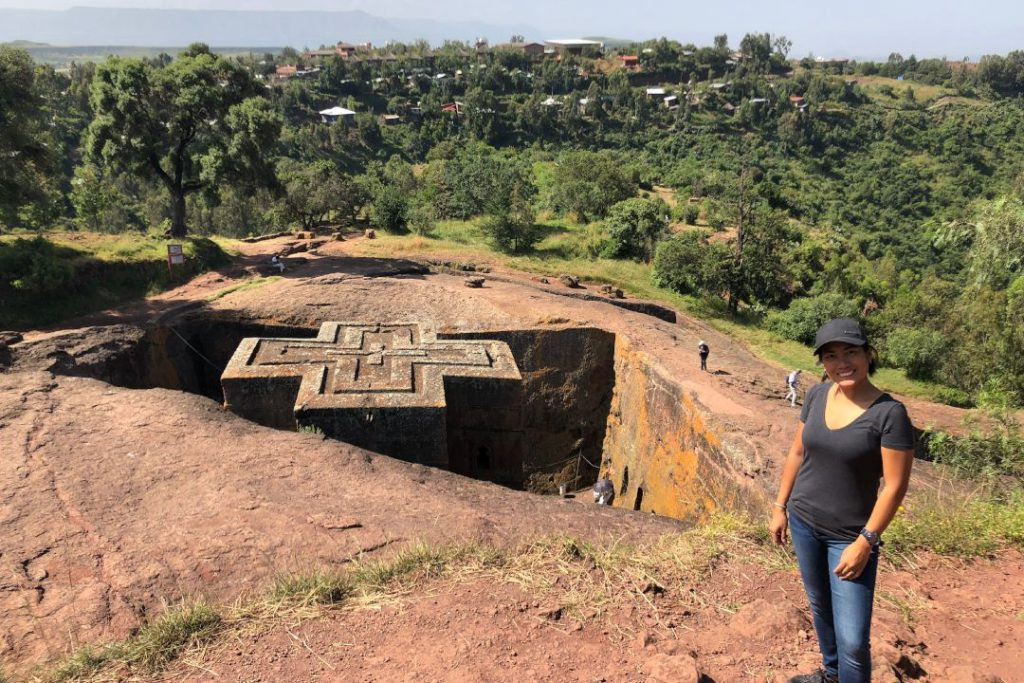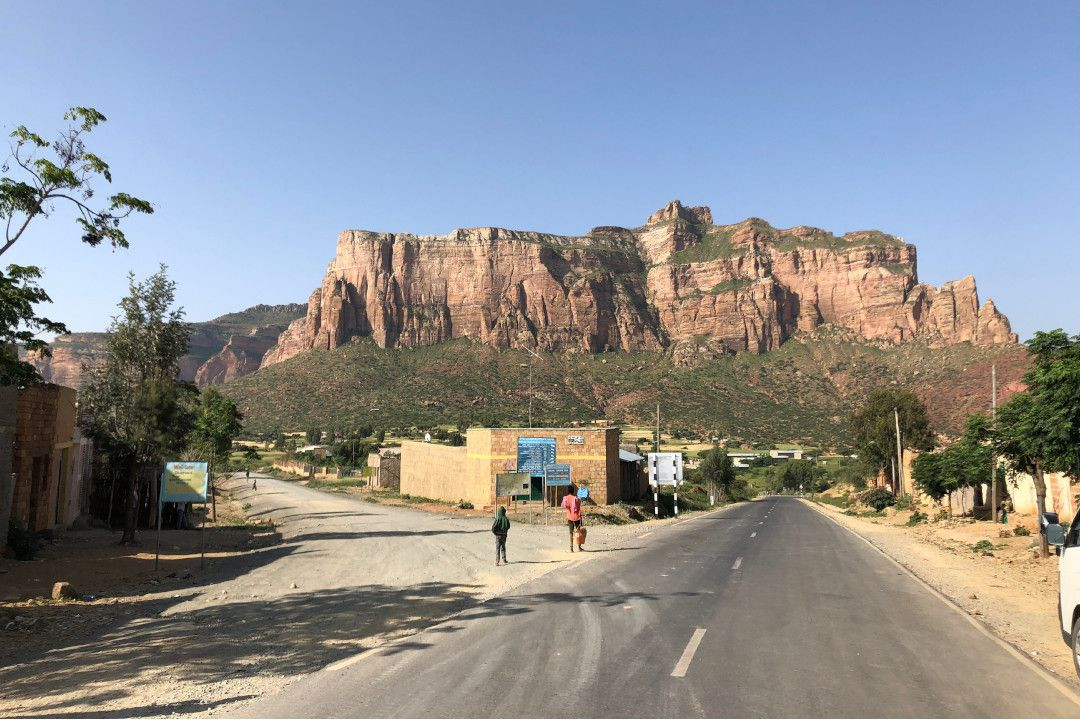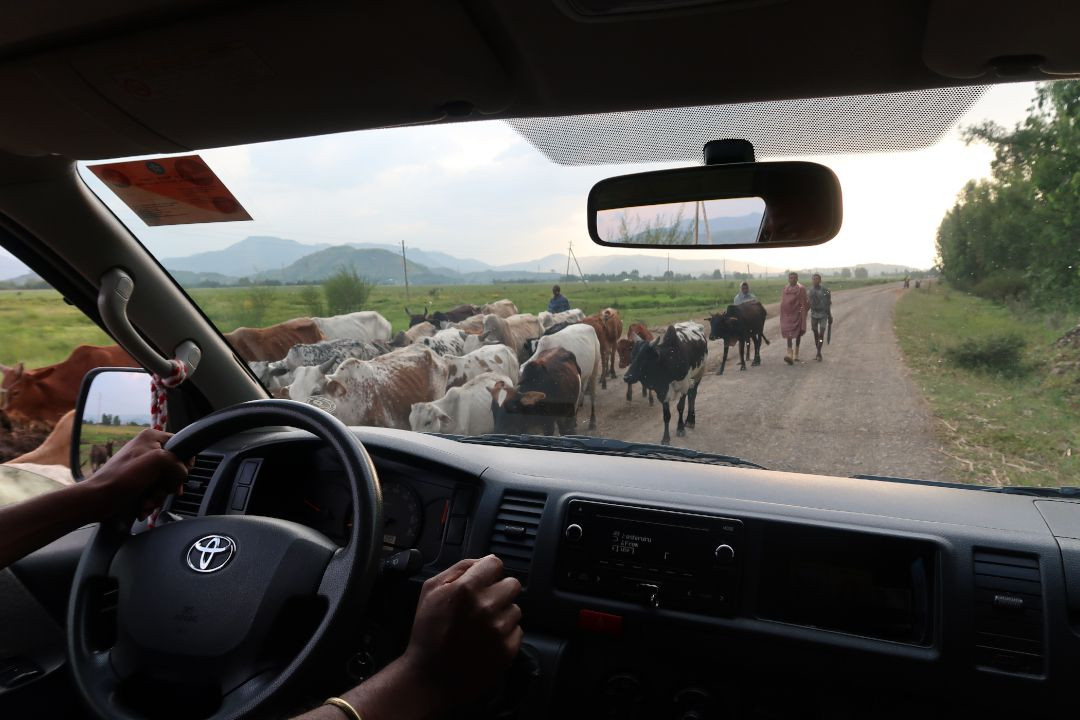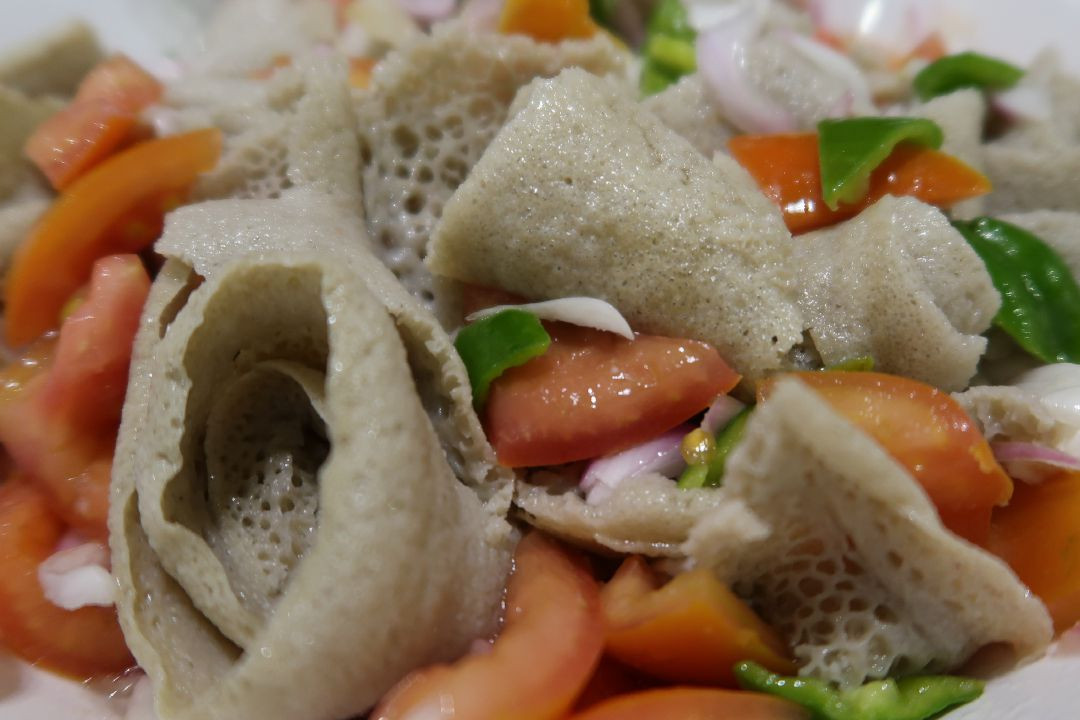Ethiopia tourism offers a unique travel experience steeped in rich history, diverse cultures, and stunning landscapes. SIXT.VN can help you navigate this fascinating destination with ease, providing tailored travel solutions for an unforgettable journey. Explore ancient landmarks, vibrant tribal communities, and breathtaking natural wonders, all while enjoying convenient and reliable services.
1. What Makes Ethiopia a Unique Tourist Destination?
Ethiopia distinguishes itself with its unparalleled blend of history, culture, and natural beauty. Unlike typical safari destinations in Africa, Ethiopia is a treasure trove of ancient sites, tribal traditions, and diverse landscapes.
- Historical Significance: Ethiopia boasts a history dating back over 3,000 years, with ancient civilizations and religious landmarks dotting the country.
- Cultural Richness: Home to diverse ethnic groups and vibrant traditions, Ethiopia offers a unique cultural experience unlike any other.
- Natural Wonders: From the dramatic Simien Mountains to the otherworldly Danakil Depression, Ethiopia’s landscapes are as diverse as they are breathtaking.
Visiting Ethiopia is like stepping back in time, offering a glimpse into a world where ancient traditions and modern life intertwine. According to a 2023 report by the Ethiopian Ministry of Tourism, historical sites attract 60% of international visitors, highlighting the country’s appeal as a cultural heritage destination.
2. What Key Attractions Should I Include in My Ethiopia Itinerary?
When planning your Ethiopia itinerary, make sure to include these must-see attractions:
- Lalibela: Famous for its remarkable rock-hewn churches, Lalibela is a UNESCO World Heritage site and a testament to Ethiopia’s rich religious history.
- Aksum: As the ancient capital of the Aksumite Empire, Aksum is home to towering obelisks, ancient ruins, and sacred religious sites.
- Gondar: Known as the “Camelot of Africa,” Gondar boasts impressive castles and palaces that offer a glimpse into Ethiopia’s imperial past.
- Omo Valley: This remote region is home to diverse tribal communities, each with its unique customs, traditions, and way of life.
- Danakil Depression: One of the hottest and lowest places on Earth, the Danakil Depression is a surreal landscape of volcanic craters, salt flats, and colorful mineral deposits.
- Simien Mountains National Park: Perfect for hiking and trekking, the Simien Mountains offer breathtaking views of rugged peaks, deep valleys, and unique wildlife.
 Lalibela Ethiopia. Rock-hewn churches, UNESCO World Heritage site, showcasing Ethiopian religious history and architecture
Lalibela Ethiopia. Rock-hewn churches, UNESCO World Heritage site, showcasing Ethiopian religious history and architecture
These attractions provide a comprehensive overview of Ethiopia’s diverse offerings, from its ancient history to its vibrant tribal cultures and stunning natural landscapes.
3. How Can I Best Experience the Tribal Culture of the Omo Valley?
The Omo Valley offers a unique opportunity to immerse yourself in the traditional cultures of Ethiopia’s diverse tribal communities.
- Guided Tours: Arrange a guided tour with a reputable local operator to ensure respectful and responsible interactions with the tribes.
- Cultural Immersion: Participate in traditional ceremonies, visit local villages, and learn about the customs and beliefs of the different tribes.
- Photography Etiquette: Always ask for permission before taking photos of people, and be prepared to offer a small payment in some cases.
- Support Local Communities: Purchase handicrafts and souvenirs directly from the tribes to support their livelihoods and preserve their cultural heritage.
According to a 2022 study by the Tourism Concern, community-based tourism initiatives in the Omo Valley have helped empower local communities and preserve their cultural identity.
4. What Should I Know About Transportation Options in Ethiopia?
Navigating Ethiopia requires careful planning, as transportation options can vary in terms of comfort and reliability.
- Flights: Ethiopian Airlines offers domestic flights to major tourist destinations, providing a convenient way to cover long distances.
- Private Cars: Hiring a private car with a driver is a comfortable and reliable option for exploring the country, especially if you’re traveling with family or in a group. SIXT.VN offers reliable car rental services with experienced drivers.
- Buses: Public buses are a budget-friendly option, but they can be crowded and unreliable, with no fixed schedules.
- Travel Operators: Booking through a reputable travel operator is the best way to ensure a seamless and hassle-free travel experience, especially if you’re on a limited schedule.
SIXT.VN offers convenient airport transfer services in Addis Ababa, ensuring a smooth and stress-free arrival and departure.
5. What Is a Typical Day Like on an Ethiopia Tour?
A typical day on an Ethiopia tour often involves a mix of cultural exploration, historical sightseeing, and scenic drives.
- Morning: Start your day with a hearty breakfast at your hotel, followed by a visit to local attractions, such as ancient churches, historical sites, or tribal villages.
- Afternoon: Enjoy a traditional Ethiopian lunch at a local restaurant, followed by more sightseeing or cultural activities.
- Evening: Return to your hotel for dinner and relaxation, or explore the local nightlife if you’re in a city like Addis Ababa.
 Road to Abune Yemata Ethiopia. Rugged terrain, scenic views, illustrating the journey to a remote historical site
Road to Abune Yemata Ethiopia. Rugged terrain, scenic views, illustrating the journey to a remote historical site
The routine may seem repetitive, but the activities are diverse and interesting, offering a unique glimpse into Ethiopia’s rich history, culture, and natural beauty.
6. What Can I Expect from the Quality of Guides and Tour Vehicles?
The quality of guides and tour vehicles in Ethiopia can vary, so it’s essential to book with a reputable operator to ensure a positive experience.
- Knowledgeable Guides: Expect your guides to be knowledgeable about Ethiopian history, culture, and geography, with good English skills.
- Reliable Vehicles: Tour vehicles typically range from vans to Pajero-type jeeps, depending on the terrain and group size.
- Mandatory Guides: In some destinations, it’s mandatory to hire a local guide, which can be a great way to support the local community and learn about the area from a local perspective.
SIXT.VN partners with experienced local guides and provides reliable tour vehicles to ensure a safe and informative travel experience.
7. How Is the Infrastructure in Ethiopia?
Ethiopia is a developing country, and its infrastructure reflects this reality.
- Roads: Many roads are bumpy, especially in rural areas, but the scenery along the way is often breathtaking.
- Public Toilets: Public toilet facilities can be lacking, so it’s best to use the facilities at restaurants and hotels whenever possible.
- Internet: Internet access can be unreliable, especially outside of major cities, so it’s best to be prepared to disconnect for periods of time.
- Hotels: Hotel standards can vary, so it’s best to stick to mid-range or luxury hotels if you’re looking for comfortable accommodations.
- Airports: Addis Ababa Bole International Airport is a large and modern airport, but domestic airports are smaller and more basic.
Despite the challenges, Ethiopia’s unique attractions and cultural experiences make it a worthwhile destination for adventurous travelers.
8. How Safe and Secure Is Ethiopia for Tourists?
Ethiopia is generally considered a safe country for tourists, but it’s essential to take certain precautions to ensure your safety and security.
- Driving: Driving can be challenging due to poor road conditions and traffic, so it’s best to hire a driver or book through a reputable tour operator.
- Petty Theft: Petty theft can be a problem in crowded areas, so it’s best to keep your valuables secure and be aware of your surroundings.
- Local Customs: Be respectful of local customs and traditions, and dress modestly when visiting religious sites.
- Photography: Always ask for permission before taking photos of people, and be prepared to offer a small payment in some cases.
SIXT.VN prioritizes the safety and security of its customers, providing reliable transportation and partnering with trusted local guides.
 Driving in Ethiopia. Rural roads, livestock crossing, highlighting the challenges of driving outside the city
Driving in Ethiopia. Rural roads, livestock crossing, highlighting the challenges of driving outside the city
9. What Cultural Differences Should I Be Aware Of in Ethiopia?
Ethiopian culture is fascinatingly different from Western traditions, offering a unique and eye-opening travel experience.
- Time System: Ethiopians use a 12-hour clock system, where the day starts at dawn rather than midnight.
- Greetings: Traditional Ethiopian greetings involve touching hands and then shoulders, rather than a simple handshake.
- Pace of Life: Life moves at a slower pace in Ethiopia, especially in rural areas, so it’s important to be patient and embrace the relaxed atmosphere.
- Coffee Culture: Coffee is an integral part of Ethiopian culture, with elaborate coffee ceremonies that are a ritualistic bonding event between women.
Understanding and respecting these cultural differences can enhance your travel experience and foster meaningful interactions with the local people.
10. What Should I Expect From Ethiopian Food and Drink?
Ethiopian cuisine is a unique and flavorful experience centered around injera, a pancake-like flatbread that accompanies almost every meal.
- Injera: This spongy bread is used to scoop up a variety of stews, vegetables, and meats, providing a unique and communal dining experience.
- Spices: Ethiopian food is known for its bold and aromatic spices, such as berbere, a blend of chili peppers, garlic, ginger, and other spices.
- Vegetarian Options: With over 200 days of fasting due to religious reasons, Ethiopia offers a wide variety of delicious vegetarian dishes.
- Coffee: Ethiopia is the birthplace of coffee, and coffee ceremonies are an essential part of Ethiopian culture.
 Injera Salad. Traditional Ethiopian cuisine, showcasing the staple injera bread with colorful salad toppings
Injera Salad. Traditional Ethiopian cuisine, showcasing the staple injera bread with colorful salad toppings
Be sure to try local specialties like doro wat (chicken stew), kitfo (minced raw beef), and shiro wat (chickpea stew) for a true taste of Ethiopia.
11. How Can SIXT.VN Enhance My Trip to Ethiopia?
SIXT.VN offers a range of services to enhance your trip to Ethiopia, including:
- Airport Transfers: Enjoy a seamless and stress-free arrival and departure with our reliable airport transfer services.
- Car Rentals: Explore Ethiopia at your own pace with our convenient car rental options, complete with experienced drivers.
- Hotel Bookings: Choose from a wide range of hotels to suit your budget and preferences.
- Tour Packages: Let us take care of the details with our expertly crafted tour packages, designed to showcase the best of Ethiopia.
- Customized Itineraries: Our team can create a personalized itinerary based on your interests and preferences, ensuring an unforgettable travel experience.
With SIXT.VN, you can relax and enjoy your trip to Ethiopia, knowing that all your travel needs are taken care of.
Address: 260 Cau Giay, Hanoi, Vietnam
Hotline/Whatsapp: +84 986 244 358
Website: SIXT.VN
12. What Are the Best Times to Visit Ethiopia?
The best time to visit Ethiopia depends on your interests and the regions you plan to visit.
- Dry Season (October to May): This is the most popular time to visit, with sunny skies and pleasant temperatures, ideal for hiking, sightseeing, and cultural exploration.
- Wet Season (June to September): While the rainy season can make travel more challenging, it also brings lush greenery and fewer crowds, making it a great time to visit if you don’t mind the rain.
13. What Travel Documents and Visas Do I Need to Enter Ethiopia?
To enter Ethiopia, you will need a valid passport and a visa.
- Passport: Your passport must be valid for at least six months beyond your intended stay in Ethiopia.
- Visa: You can obtain a visa online or upon arrival at Addis Ababa Bole International Airport. However, it’s recommended to apply for a visa in advance to avoid potential delays.
14. What Are Some Essential Items to Pack for My Trip to Ethiopia?
When packing for your trip to Ethiopia, consider the following essential items:
- Comfortable Walking Shoes: You’ll be doing a lot of walking, so comfortable shoes are a must.
- Lightweight Clothing: Pack lightweight, breathable clothing suitable for warm weather.
- Layers: Evenings can be cool, especially in the highlands, so pack a few layers of clothing.
- Sunscreen and Hat: Protect yourself from the sun with sunscreen and a hat.
- Insect Repellent: Mosquitoes can be a problem in some areas, so pack insect repellent.
- Adapter: Ethiopia uses European-style plugs, so bring an adapter if needed.
15. What Are Some Tips for Responsible Tourism in Ethiopia?
To ensure a positive impact on the local communities and environment, consider the following tips for responsible tourism in Ethiopia:
- Support Local Businesses: Choose locally owned hotels, restaurants, and tour operators.
- Respect Local Customs: Dress modestly, ask for permission before taking photos, and be mindful of local traditions.
- Conserve Resources: Save water and electricity, and avoid using single-use plastics.
- Learn Some Basic Phrases: Learning a few basic phrases in Amharic, the local language, can go a long way in building rapport with the locals.
- Leave No Trace: Pack out all trash and avoid disturbing the natural environment.
By following these tips, you can contribute to sustainable tourism practices and help preserve Ethiopia’s unique cultural and natural heritage.
16. How Does Ethiopia’s Rich History Impact Tourism Today?
Ethiopia’s rich history, spanning millennia, profoundly shapes its tourism landscape.
- Ancient Civilizations: The remnants of the Aksumite Empire, with its towering obelisks and ancient ruins, attract history enthusiasts from around the globe.
- Religious Significance: The rock-hewn churches of Lalibela, a UNESCO World Heritage site, draw pilgrims and tourists alike, showcasing Ethiopia’s deep-rooted Christian heritage.
- Imperial Legacy: Gondar, with its impressive castles and palaces, offers a glimpse into Ethiopia’s imperial past, attracting visitors interested in the country’s royal history.
These historical landmarks serve as major tourist attractions, providing valuable insights into Ethiopia’s past and contributing to the country’s cultural tourism sector.
17. What Role Does Coffee Play in Ethiopian Tourism?
Coffee plays a significant role in Ethiopian tourism, as Ethiopia is considered the birthplace of coffee.
- Coffee Plantations: Visiting coffee plantations and learning about the coffee-making process is a popular tourist activity.
- Coffee Ceremonies: Witnessing and participating in traditional coffee ceremonies offers a unique cultural experience, allowing visitors to connect with local traditions.
- Coffee Culture: Exploring local cafes and savoring Ethiopian coffee is a must for any coffee lover visiting the country.
According to a 2021 report by the International Coffee Organization, coffee tourism is a growing trend in Ethiopia, attracting visitors interested in learning about the origins and traditions of coffee.
18. How Can I Navigate Language Barriers in Ethiopia?
While English is spoken in tourist areas, knowing some basic Amharic phrases can enhance your interactions with locals.
- Learn Basic Phrases: Mastering greetings like “Selam” (hello) and “Ameseginalehu” (thank you) can go a long way in showing respect and building rapport.
- Use Translation Apps: Translation apps can be helpful for communicating with locals who don’t speak English.
- Hire a Local Guide: Hiring a local guide can help bridge the language barrier and provide valuable insights into local culture and customs.
19. What Are Some Popular Souvenirs to Buy in Ethiopia?
When shopping for souvenirs in Ethiopia, consider these popular items:
- Ethiopian Coffee: Purchase high-quality Ethiopian coffee beans to take home a taste of Ethiopia.
- Handwoven Textiles: Look for colorful handwoven textiles, such as scarves, shawls, and blankets.
- Tribal Handicrafts: Support local communities by purchasing tribal handicrafts, such as jewelry, pottery, and wood carvings.
- Religious Artifacts: Find unique religious artifacts, such as crosses, icons, and prayer beads.
20. What Emerging Trends Are Shaping Tourism in Ethiopia?
Several emerging trends are shaping tourism in Ethiopia.
- Ecotourism: Ecotourism is on the rise, with a focus on sustainable travel practices and responsible tourism.
- Adventure Tourism: Adventure tourism is gaining popularity, with activities like hiking, trekking, and rock climbing attracting outdoor enthusiasts.
- Cultural Tourism: Cultural tourism continues to be a major draw, with visitors interested in exploring Ethiopia’s diverse ethnic groups and traditions.
- Digital Nomadism: Ethiopia is attracting digital nomads with its unique cultural experiences and affordable cost of living.
These trends indicate a growing interest in Ethiopia as a diverse and sustainable travel destination, offering unique experiences for a wide range of travelers.
FAQ: Ethiopia Tourism
Q1: Is Ethiopia a safe country to visit for tourists?
Yes, Ethiopia is generally safe, but exercise standard precautions like safeguarding valuables and avoiding isolated areas at night. Check travel advisories for updates.
Q2: What are the must-see attractions in Ethiopia?
Lalibela’s rock-hewn churches, Gondar’s castles, Aksum’s ancient ruins, the Omo Valley’s tribal cultures, and the Danakil Depression’s surreal landscapes are essential sights.
Q3: What is the best time to visit Ethiopia?
The dry season (October to May) is ideal, offering sunny skies for exploring Ethiopia’s attractions.
Q4: Do I need a visa to enter Ethiopia?
Yes, a visa is required. Apply online in advance or obtain one upon arrival at Addis Ababa Bole International Airport.
Q5: What should I pack for a trip to Ethiopia?
Pack comfortable walking shoes, lightweight clothing, layers for cooler evenings, sunscreen, insect repellent, and necessary adapters.
Q6: What are some cultural customs I should be aware of in Ethiopia?
Be mindful of Ethiopia’s 12-hour clock system, unique greetings, and the significance of coffee ceremonies. Dress modestly when visiting religious sites.
Q7: What is the food like in Ethiopia?
Ethiopian cuisine centers around injera, a flatbread, with spiced stews and vegetarian options. Try doro wat and enjoy a traditional coffee ceremony.
Q8: How can I get around in Ethiopia?
Options include domestic flights, private cars with drivers (recommended), and public buses. Consider booking with a travel operator for ease.
Q9: What are some popular souvenirs to buy in Ethiopia?
Ethiopian coffee, handwoven textiles, tribal handicrafts, and religious artifacts make excellent souvenirs.
Q10: Is English widely spoken in Ethiopia?
English is spoken in tourist areas, but learning basic Amharic phrases will enhance your interactions with locals.
Ethiopia offers a travel experience unlike any other, immersing you in ancient history, vibrant culture, and breathtaking landscapes. Let SIXT.VN be your guide to this remarkable destination, providing seamless travel solutions for an unforgettable adventure. Contact us today to start planning your Ethiopia tour!



